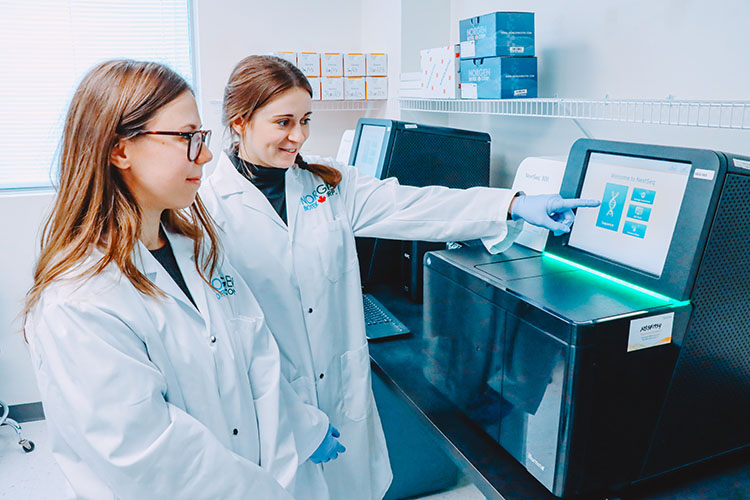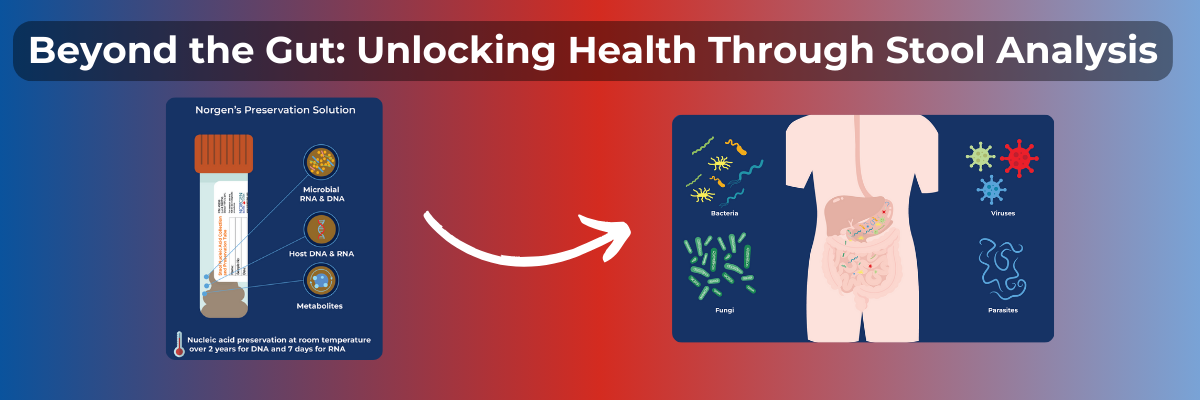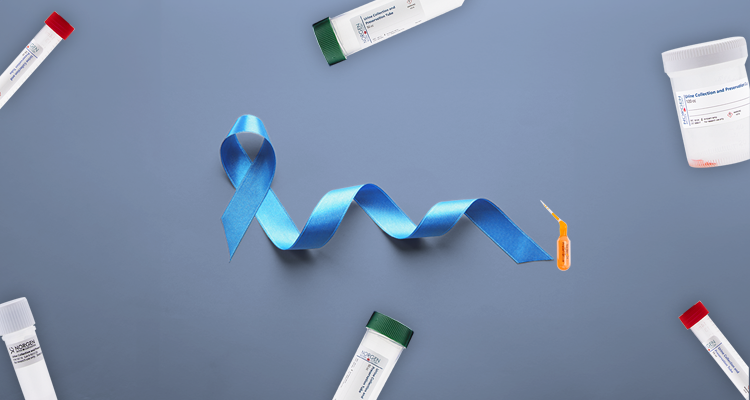For the first time ever, the Human Genome Project gave researchers the ability to sequence the base pairs of human DNA and read a human's entire genetic makeup. The project took around 13 years to complete (1990-2003), involved researchers from 20 universities globally and cost 2.7 billion dollars, however, it allowed researchers and scientists to make great discoveries (Tirrell, 2015). Thankfully, next generation sequencing (NGS) of a whole genome can now be completed in just a few weeks for a fraction of the cost.
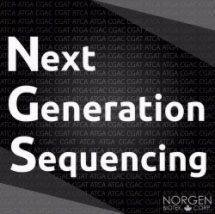 NGS is an extremely important and valuable method
used for scientific research, allowing researchers to rapidly sequence whole genomes on a large scale. Whether one is
studying cancer, the human microbiome, or conducting disease research, NGS can greatly aid researchers in their
understanding of the genetic factors influencing all living organisms. In relation to COVID-19, NGS has been
especially useful in discovering emerging variants of SARS-CoV-2 RNA in communities, along with mass screening. With a
countless number of applications, NGS is designed to
discover.
NGS is an extremely important and valuable method
used for scientific research, allowing researchers to rapidly sequence whole genomes on a large scale. Whether one is
studying cancer, the human microbiome, or conducting disease research, NGS can greatly aid researchers in their
understanding of the genetic factors influencing all living organisms. In relation to COVID-19, NGS has been
especially useful in discovering emerging variants of SARS-CoV-2 RNA in communities, along with mass screening. With a
countless number of applications, NGS is designed to
discover.
NORBLOG
Want to hear more from Norgen?
Join over 10,000 scientists, bioinformaticians, and researchers who receive our exclusive deals, industry updates, and more, directly to their inbox.
For a limited time, subscribe and SAVE 10% on your next purchase!
SIGN UP
A quick Google search for “next generation sequencing service providers” leads to millions of search results. So, how are you supposed to know which provider to go with? How do you know who is best suited for your sample or size, timeline, and every other factor involved in next generation sequencing? Luckily, we've created a simple checklist to help you decide which NGS service provider is right for your project.
NGS Consultation & Knowledge
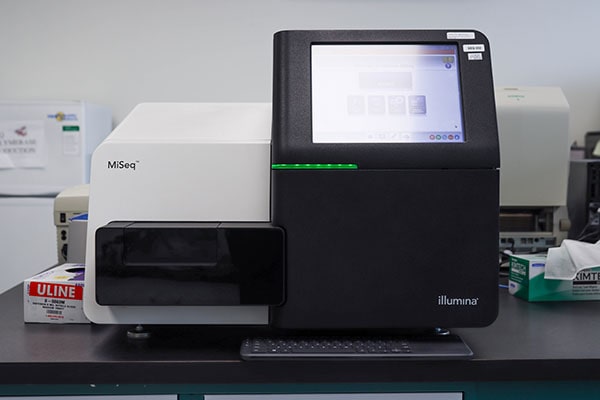 First and foremost, when planning your NGS project
it is important to find a service provider who offers the right type of NGS service and can work with your samples.
With just a few minutes of research, you will be able to find a number of providers who offer the right service,
whether that be small RNA sequencing, metagenomics sequencing, or any other type of NGS.
First and foremost, when planning your NGS project
it is important to find a service provider who offers the right type of NGS service and can work with your samples.
With just a few minutes of research, you will be able to find a number of providers who offer the right service,
whether that be small RNA sequencing, metagenomics sequencing, or any other type of NGS.
Identifying and understanding the capabilities of the service provider you have elected to work with is extremely important to consider when beginning your project. The number of samples you have (100 samples or 10,000 samples), access to required equipment and platforms, as well as the ability to meet your deadlines should all factor into your decision when choosing an NGS service provider. If the provider you’re looking into offers NGS consultations, this is a great opportunity to ask these important questions. Be sure to look out for companies that offer free NGS consultations to ensure that their capabilities fit your needs. In depth knowledge, skill and experience are essential when it comes to next generation sequencing, so be sure to choose your service provider wisely!
Customer Service & Collaboration
 When choosing an NGS service provider you’ll also
want to consider the level of customer service that you’ll receive. If you’re working with challenging sample types or
are inexperienced with NGS, it’s important to feel confident after your initial consultation and that you can rely on
your providers throughout the entire sequencing process.
When choosing an NGS service provider you’ll also
want to consider the level of customer service that you’ll receive. If you’re working with challenging sample types or
are inexperienced with NGS, it’s important to feel confident after your initial consultation and that you can rely on
your providers throughout the entire sequencing process.
Furthermore, when you have your NGS consultation you should be sure you know who you're speaking with. The best consultations will be with an NGS scientist or specialist rather than a sales representative. They’re hands-on-experience helps them understand your project needs and can act as a guide for best practices. By the end of your NGS consultation you should feel assured that the service provider you have chosen has sufficiently answered all of your questions and will be with you every step of the way. Finally, ensure that you have set clear objectives so the provider can make the best recommendations to suit the needs of your project.
Sample Preparation & Quality Control
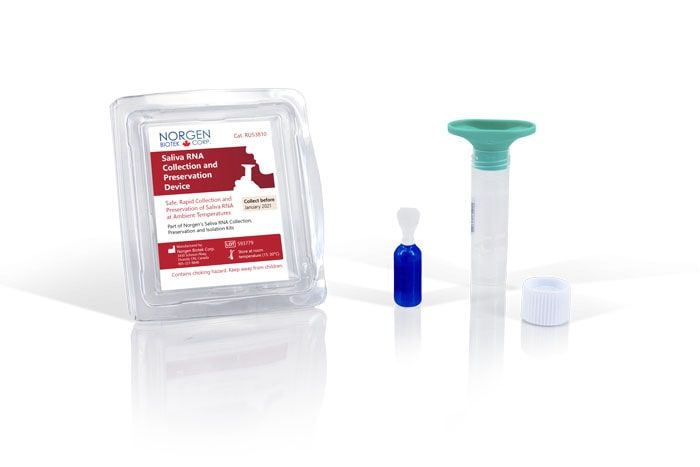 Quality samples lead to quality results, therefore
sample preparation is extremely important for NGS. Upfront sample handling can play a huge role in the quality of
nucleic acid that can be sequenced to produce meaningful data. However, it is not always possible to control the
sample collection/handling. If you are working with archived samples, for example, sample concentration and quality
can be a concern. When choosing an NGS service provider you’ll want to consider the quality of your sample
preparation, as sequenced data is only as good as the quality of the sample provided. Quality
in = quality out. If you are sending archived samples for DNA or RNA isolation, you want to ensure the
service provider will use high quality extraction kits on your samples (see Nucleic Acid Extraction below).
Quality samples lead to quality results, therefore
sample preparation is extremely important for NGS. Upfront sample handling can play a huge role in the quality of
nucleic acid that can be sequenced to produce meaningful data. However, it is not always possible to control the
sample collection/handling. If you are working with archived samples, for example, sample concentration and quality
can be a concern. When choosing an NGS service provider you’ll want to consider the quality of your sample
preparation, as sequenced data is only as good as the quality of the sample provided. Quality
in = quality out. If you are sending archived samples for DNA or RNA isolation, you want to ensure the
service provider will use high quality extraction kits on your samples (see Nucleic Acid Extraction below).
If you still need to collect your samples, you should look for a provider who can offer recommendations for how to best handle your samples pre-collection, and better yet, who can offer the required technology to collect and preserve such samples. Some NGS service providers offer complete workflow solutions, meaning they provide everything needed from sample collection and preservation devices all the way to advanced bioinformatic analyses. Selecting a full service provider is ideal for researchers with limited time or who are working with a large quantity of samples. It is beneficial to choose a facility with stringent sample preparation and quality control measures to ensure you get high quality data and results.
Sample Submission & Shipping
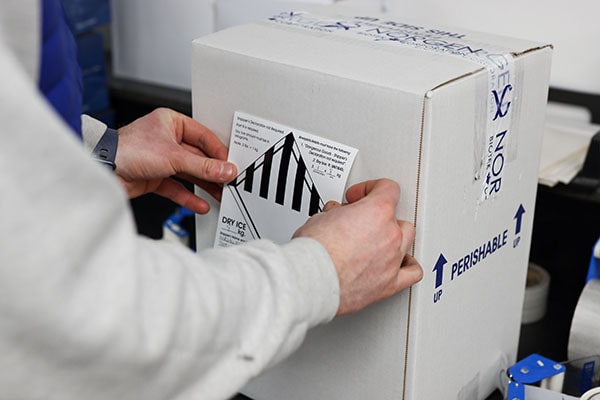 Shipping precious biological samples on dry ice can
be stressful, especially if they are traveling far distances. You want to be sure you are selecting a service provider
that can make helpful recommendations for your sample submission and shipping arrangements. If you are shipping your
samples internationally, you should consider choosing a service provider who will monitor the shipment on your behalf
and offer detailed shipping
instructions to ensure your samples arrive in the best condition possible. Look for specifics, such
as which day of the week is best to ship and what quantity of dry ice should be used. The shipping arrangements should
both be economical and time efficient. You’ll thank yourself in the future for choosing a provider who values this.
Shipping precious biological samples on dry ice can
be stressful, especially if they are traveling far distances. You want to be sure you are selecting a service provider
that can make helpful recommendations for your sample submission and shipping arrangements. If you are shipping your
samples internationally, you should consider choosing a service provider who will monitor the shipment on your behalf
and offer detailed shipping
instructions to ensure your samples arrive in the best condition possible. Look for specifics, such
as which day of the week is best to ship and what quantity of dry ice should be used. The shipping arrangements should
both be economical and time efficient. You’ll thank yourself in the future for choosing a provider who values this.
Nucleic Acid Extraction
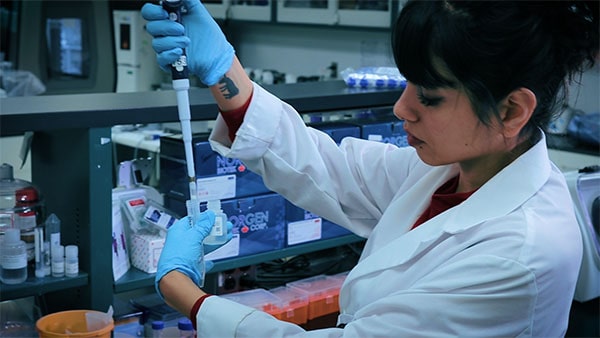 Not all researchers have the time or resources
readily available to perform nucleic acid extractions at their lab. In this case, it may be beneficial to choose a
service provider who offers nucleic acid extraction as part of their NGS workflow. If you are working with challenging
sample types such as ultra-low input liquid biopsies, exosomes, FFPE or LCM samples, a service provider with nucleic
acid extraction experience can save you a lot of time, money and hassle. If you require full service for your NGS
project, you should choose a service provider who offers a custom
workflow. That way you only have to communicate with one provider for all of your needs,
including sample collection and preservation, nucleic acid
extraction services, as well as quality control, library preparation, sequencing, and bioinformatics
reporting.
Not all researchers have the time or resources
readily available to perform nucleic acid extractions at their lab. In this case, it may be beneficial to choose a
service provider who offers nucleic acid extraction as part of their NGS workflow. If you are working with challenging
sample types such as ultra-low input liquid biopsies, exosomes, FFPE or LCM samples, a service provider with nucleic
acid extraction experience can save you a lot of time, money and hassle. If you require full service for your NGS
project, you should choose a service provider who offers a custom
workflow. That way you only have to communicate with one provider for all of your needs,
including sample collection and preservation, nucleic acid
extraction services, as well as quality control, library preparation, sequencing, and bioinformatics
reporting.
Quality Control and Library Preparation
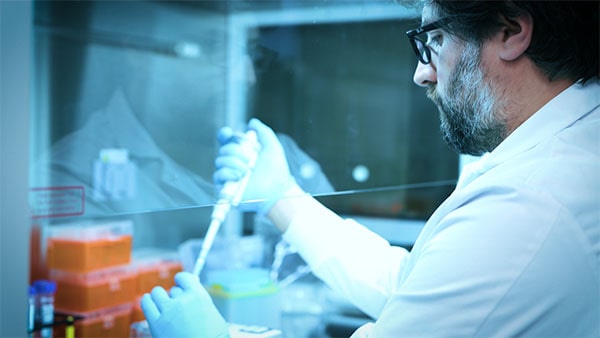 Ensuring the quality is measured at each step of
the project is extremely important. When selecting an NGS service provider, be sure you understand which quality
measures will be performed on your samples. If you’ve already extracted nucleic acid from your samples, it is
important to choose an NGS provider who will look at your QC data to determine if the samples are suitable for library
preparation. If you are working with low concentration or challenging sample types, it could be beneficial to choose a
service provider who will share the QC results of your samples and libraries with you prior to sequencing. This
relates back to choosing an NGS service provider who values and prioritizes quality data and offers customer support
every step of the way.
Ensuring the quality is measured at each step of
the project is extremely important. When selecting an NGS service provider, be sure you understand which quality
measures will be performed on your samples. If you’ve already extracted nucleic acid from your samples, it is
important to choose an NGS provider who will look at your QC data to determine if the samples are suitable for library
preparation. If you are working with low concentration or challenging sample types, it could be beneficial to choose a
service provider who will share the QC results of your samples and libraries with you prior to sequencing. This
relates back to choosing an NGS service provider who values and prioritizes quality data and offers customer support
every step of the way.
Bioinformatics Analysis
 Depending on your research needs and understanding
of raw data, it may be important to choose a provider who offers advanced bioinformatics analysis as part of their
workflow. They should let you know ahead of time what types of figures and graphs are included in the bioinformatics
service report, as not all reports contain the same types of information. You never want to assume that your report
will include specific figures generated by different analyses (e.g. a volcano plot). Ask your NGS service provider for
a sample service
report beforehand to ensure you’ll receive the information you need.
Depending on your research needs and understanding
of raw data, it may be important to choose a provider who offers advanced bioinformatics analysis as part of their
workflow. They should let you know ahead of time what types of figures and graphs are included in the bioinformatics
service report, as not all reports contain the same types of information. You never want to assume that your report
will include specific figures generated by different analyses (e.g. a volcano plot). Ask your NGS service provider for
a sample service
report beforehand to ensure you’ll receive the information you need.
If you are performing your NGS project for research purposes and need to publish your findings, it is imperative that you work with a service provider who provides your data as raw reads as well as ready-to-publish figures. Lastly, it is always a good idea to select a service provider who offers bioinformatic technical support. Sometimes your findings may not support your hypothesis (which is okay!), and it is advantageous to be able to ask questions and receive support from the bioinformaticians who profiled your data.
Cost of Quality
When choosing your NGS service provider it is also important to consider the cost of quality. Although price is very important when making any purchase decision,the cost will equal the quality of service you will be receiving. If you are choosing a service provider solely based on low cost, it is unlikely to check all of these points off your list. When selecting your NGS service provider, keep these points in mind to help ensure you select the best suited provider and receive high quality, meaningful results. Download our free checklist below to help you choose an NGS service provider that is right for you!
Norgen Biotek Corp. specializes in RNA, small RNA, and metagenomics sequencing. If your research project requires any of these services, book your free consultation with our NGS specialists and we’ll get your project started together!
